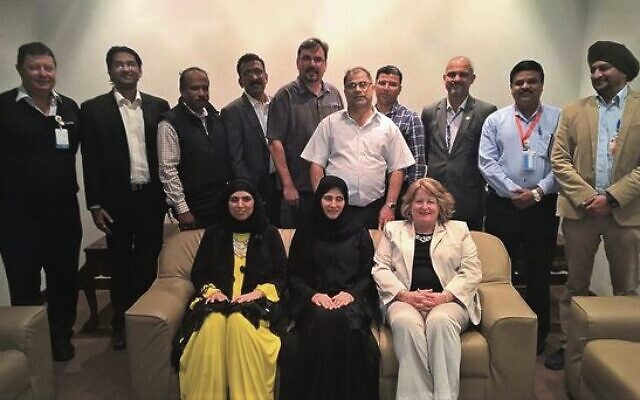Far frum home in the Arab world
A Melburnian Orthodox Jew's experience, working in Muslim nations.
Harold Monty Sacher has travelled far and wide for his clients, flying out to stunning beaches in the Maldives and the golden temples of the tiny nation of Brunei to offer his skills and more than 30 years’ worth of experience as director of his own consultancy company.
As an Orthodox Jew who would be seen in Melbourne proudly wearing his kippah, getting the call to live and work in many of the world’s Muslim nations, including the UAE, Oman and Bahrain – while to some frum Jews might seem daunting – he found very exciting.
On his first work trip to the UAE, Sacher recalled he was working for a global energy company just after the 2010 assassination of Hamas military leader Mahmoud al-Mabhouh was assassinated in Dubai – allegedly by Mossad. In this pre–Abraham Accords world, Sacher was unable to find a Jewish community.
But in 2015, after years of searching and after many Thursday-night flights to Israel for Shabbat, Sacher finally found a community which had remained underground. The villa and shule had become the location for many meetings for a group of Jewish leaders that ended up becoming the body the UAE government trusted to send to the White House to be involved in the construction of the Abraham Accords.
“I was amazed to be present when their constitution was put to the vote,” said Sacher, who added, “From spending Shabbat on my own for many years in several Muslim countries, I was suddenly surrounded by 60 very happy Jews!”
A year earlier, the businessman made his way to Brunei where he worked for a hospital owned by the Sultan, helping its leadership with strategic planning and performance management.
Sacher reported that he was spoiled while working in his role – which was common in many Muslim countries – given luxury rooms, taken on sight-seeing tours and, in this case, provided the chairman’s office to work from.
While he usually removes his kippah while working in these corners of the world, he told The AJN that after forgetting to take it off, although the population lives under Sharia law, no one made any comments or treated him differently.
During his time in the Middle East, Sacher also found himself working alongside many Orthodox Muslim women “in senior executive positions in industry and government,” an insight he found remarkable.
Asked by many friends whether he felt safe in these countries, Sacher said he “felt incredibly safe” and told The AJN he is excited to be able to return soon.


comments